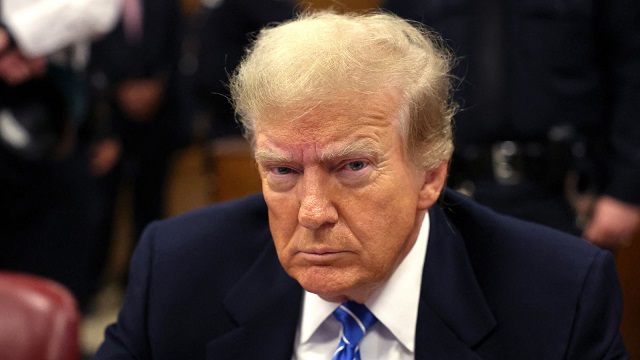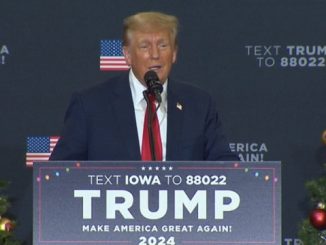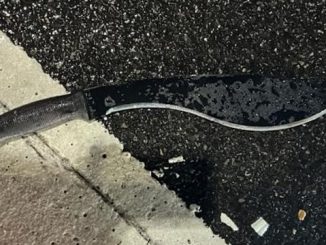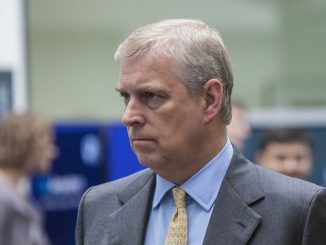
Donald Trump will not testify in his historic criminal trial, after his defence team rested their case on Tuesday.
It will be up to his lawyers to speak for him instead as they deliver closing statements next week.
Though Mr Trump decided not to testify, he talked at length to the press waiting outside the courtroom.
“I think a great case was put on. There is no crime,” Mr Trump said just before the afternoon session.
It is not unusual for criminal defendants to choose not to take the stand, legal experts say.
Testifying under oath would have opened Mr Trump up to aggressive questioning from prosecutors, as well as other elements of his background including unfavourable verdicts in his recent civil trials.
Mr Trump faces 34 felony charges of falsifying business records, to which he has pleaded not guilty. Prosecutors say that he falsified records of reimbursements to his personal lawyer, Michael Cohen, who had paid $130,000 (£102,000) in hush money to an adult film star before the 2016 election. They allege that he did so to commit or conceal a second crime.
Before resting their case, his lawyers called just two witnesses, following a parade of 20 witnesses for the prosecution.
Justice Juan Merchan dismissed the jury mid-morning, telling them to return on Tuesday for closing statements from both prosecutors and Mr Trump’s lawyers.
He then oversaw a flurry of business to set the jury up to begin deliberations, devoting the afternoon to a highly technical but crucial hearing to determine how he will instruct the jury before they are sent to deliberate.
Both sides made suggestions on how the judge will tell the jury to apply the law and use the evidence in this case.
Many of the lawyers’ arguments were highly technical. In one example, there was a debate about referring to Mr Trump’s former lawyer Cohen’s past “crime” or, as there was more than one, “crimes”. Cohen was a key witness for the prosecution.
Emil Bove, Mr Trump’s lawyer, successfully argued that the judge should address bias with the jury, due to his client’s controversial reputation.
However, he failed in a bid for Justice Merchan to instruct the jury to agree on which second crime Mr Trump allegedly sought to commit or conceal by falsifying the business records.
Prosecutors have narrowed in on three possible crimes but they do not have to specify which one they believe Mr Trump committed or concealed. They have presented a broad theory of election fraud to the jurors, but have kept the specifics relatively vague.
Mr Bove acknowledged that the request was unorthodox, but felt the judge could use his discretion. “What you’re asking me to do is change the law, and I’m not going to do that,” Justice Merchan told him.
A moment of levity came as Justice Mechan decided they would strike the convoluted word “eleemosynary” – used here as legalese for charitable – from the instructions.
He told the court he had read it hundreds of times, and never knew how to pronounce it.
“Anyone want to try?” he asked, prompting laughter in the courtroom.
These arguments will come into play as soon as Tuesday, when Justice Merchan may deliver his detailed instructions to the jury and send them out to deliberate.
The 12 regular New Yorkers will then enter a highly guarded room where they will decide whether to declare Mr Trump guilty, or not guilty, on each of the 34 charges.
Source: bbc.co.uk






Be the first to comment